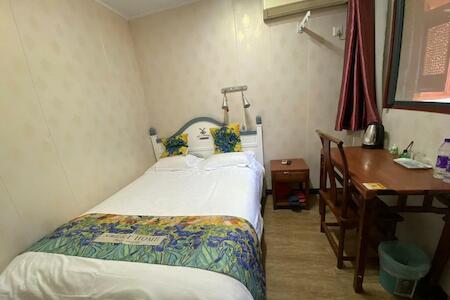Looking for budget stays in Shaoxing? This section is designed to save you time, money, and unnecessary stress. We've got insider tips to help you find affordable hostels and the cheapest places to stay in Shaoxing.
Shaoxing is a prefecture-level city on the Qiantang River estuary in the Zhejiang province in central China. It’s been a settled city since the early 12th century, but is the native home of the indigenous, semi-nomadic Yue peoples. It was in the early 5th century BCE that the Yue began building permanent settlements in the hills. The city was known as Kuaiji after the Chu people conquered the Yue in the late 4th century BCE, but was renamed Shaoxing in the 12th century AD.
Shaoxing is famous in Chinese culture for being a scholarly centre. Notable inhabitants include the writer Lu Xun, who was a leading Chinese novelist in the early 20th century, Wang Xizhi, a well-known Chinese calligrapher, and Xu Wei, a painter. The Shen Gardens, the Orchid Pavilion, the Xianheng Hotel, and the Baicao Garden are all local sights associated with some of the above names.
If you are looking for a hostel in Shaoxing, you should look in the main city, within the ring highway. Ask at the tourist information for a “su-she,” which means “hostel” in (simplified) Chinese. There are very few hostels in Shaoxing itself, so you might prefer to cross the river and stay at a hostel in Hangzhou, where there are many more!
In part thanks to the ancient Yue people, Shaoxing is home to a unique culture known as Zhufu. Literally, this is an ancient, annual sacrificial ceremony. It began with political undertones whilst the Yue people prayed for two martyrs; over time is has lost its political significance and is now a ceremony where the Yue give thanks for the previous year and pray for continued blessings. It occurs in the (western) Christmas period, right before the Chinese New Year, and is traditionally a family event; you could consider staying with a local family in a homestay in order to experience this.
Written by Travel Expert Shaoxing
 Jakob Lombardi
Jakob Lombardi